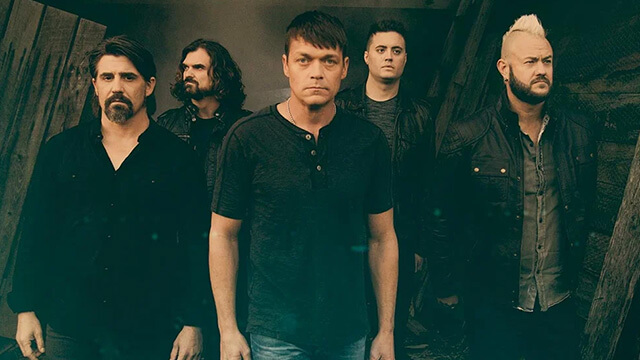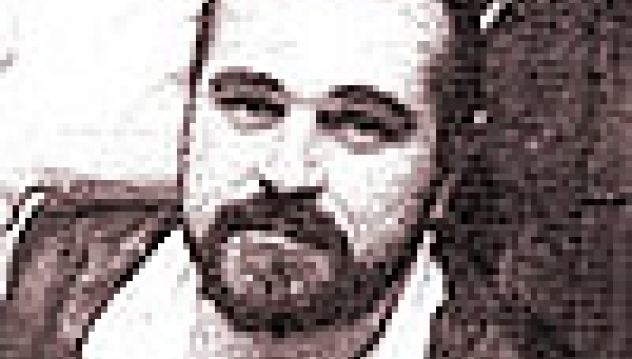Chocho Vladovski’s last interview.
It was given for Tangra Mega Rock in May 2006.
M. P.: This is a name, well known to the fans of the Bulgarian music – this is Chocho Vladovski. Good afternoon!
C. V.: Good afternoon to everyone.
M. P.: I am a bit embarrassed to present a name like yours because you have many years on stage – how many, actually?
C. V.: I’ve been on stage since 1973.
M. P.: So this is more than 30 years. Can we say that Chocho Vladovski is from Tangra – the man who sings “a pot of coffee” or we can’t limit ourselves to this?
C. V.: You can’t, because this is only one period in my career. Maybe many people know me for this song but before it I’ve been famous and have been on stage, as well as after this song… After me being a member of Tangra.
M. P.: A while ago we heard a song, I don’t know whether the listeners paid any attention – this was you singing, wasn’t it? – A band, Sinyo Belite, one of the lineups, to be more precise.
C. V.: Yes.
M. P.: When did you record this song?
C. V.: 1978 or 1979.
M. P.: It was five of you there. Famous colleagues, or…
C. V.: Famous colleagues, yes. One of them, on the guitar, is my brother Trushan Vladovski, known from Srebarnite Grivni. For almost 30 years he’s been living in the States. Actually, almost everybody from that band lives abroad. – Some in the States, some in Finland, others in Sweden. Another colleague, Boyan Balev, bassist, he is still here. Drummer was Anton Bubev, who is also here. Bassist was Alexander Petrunov Sasho Grivnata, as well, who is also in the States.
M. P.: So let’s start from the beginning. How did it all start with you and the music?
C. V.: Well, it started a long time ago. I was almost 13 years old and because of my older brother, who played the guitar in Srebarnite Grivni, myself and my classmate in the music school Ivan Lechev started playing. It was all a bit like a joke – he was playing the violin and the guitar and I was singing and playing the flute. My brother, who did not believe that I am so young and already play rock and roll, started listening and so they invited me to join them.
M. P.: OK, so let’s carry on. So you and Ivan Lechev are in a band. Then what happens – which is the first band of which you were a member?
C. V.: The first band, of which I was a member, was 6+1. Unfortunately, I didn’t record anything with it because it was disbanded. But there were famous musicians in it.
M. P.: When was that? -В 6+1 is of interest to the collectors of old music, because it had an EP.
C. V.: Just before it was disbanded. I think it must have been 1973. The frontman was Ivan Peev, on the guitar was a very good guitarist from Plovdiv – Ilia Karayanev. Bassist was Sasho Grivnata and drummer was Bojidar. There were “blowers” – one of them was Dancho Kapitanov on the trumpet, on the saxophone was Ilko Aronov, trombonist was Pesho, don’t remember his family name. Singers were Boreto Godjunov and Margie Hranova.
M. P.: Let’s move on. Have you been in another band, before joining Diana Express?
C. V.: Yes, after that I went to Srebarnite Grivni and with Emil Dimitrov in Sinyo Belite.
M. P.: So you’ve been inВ Srebarnite Grivni and Sinyo Belite?
C. V.: Yes.
M. P.: So, let’s talk about Diana Express. They put out an album, which according to Mitko Shterev, is the first rock album of a Bulgarian band.
C. V.: Yes.
M. P.: When did you join them?
C. V.: After Mitko Shterev put out this album, he gathered us as a band and we went on tour.
M. P.: It is written on the album sleeve that the first concert is in Universiada hall and on the guitar was Konstantin Atanasov.
C. V.: Yes, Kossyo was the guitarist and Vantera, who is no longer among us, was the bassist. Vanyoto, who also passed away, was the drummer.
M. P.: This was a very impressive band. – Turns up out of the blue…
C. V.: Our first concert was in the Lilyana Dimitrova hall.
M. P.: Let’s just clarify one thing, which I remember from that concert – did you play the flute, or I am completely mistaken?
C. V.: Yes, yes. I played the flute, which back then was very attractive. There was, and still is, this band Jethro Tull with this virtuoso of the flute Ian Anderson, whom I was trying to imitate, though I was studying classical flute.
M. P.: I suppose the manner of playing is completely different.
C. V.: Very different, yes. He has this specific manner of playing – singing and playing at the same time, which was very interesting. And so I started playing like that and it was very interesting.
Our first concert was in Lilyana Dimitrova was our first concert and then we went on a national tour.
M. P.: Let’s tell about the concert in Sofia.
C. V.: Well, they stopped it, because there were so many people that the concrete slab cracked and the venue managers got worried that there might be an accident. The people were dancing and jumping and the slab cracked.
M. P.: So how did the tour go?
C. V.: I remember that we started from Yambol, Mitko Shterev’s home town. The concert was in the Diana sports hall and we had a great success. And so we carried on like this for about an year and a half or two. Then the Concert Department imposed on us some conditions that we have to become something like employees on fixed salaries. We refused because we had to have a huge number of concerts for some miserable salary which barely covered our travelling and hotel expenses.
Unfortunately, we don’t have any live recordings from then because we didn’t have any equipment. No one could by a tape recorder. We only had a mixing desk and some sound equipment.
M. P.: Do I remember correctly that you were in another band -В Formula?
C. V.: Yes, with Margie Hranova.
M. P.: And where did I see you?
C. V.: In the circus. We were at the end of the routine – sang with Margie and danced.
M. P.: And how do we get to probably your most popular part of your career – in Tangra?
C. V.: Well, after I ended my career with Sinyo Belite, in which I was the lead singer for seven years – after Diana Express. There I worked with Emil Dimitrov. And my brother was there. And so was Sasho Grivnata.
M. P.: And so what comes out of all this – a super band – great musicians, sold out halls and stadiums, long hair, beards, flutes… Or there weren’t stadiums?
C. V.: We played stadiums, too, but we did not have enough equipment. So we preferred halls.
M. P.: What was the environment like? – You mentioned the Concert Department.
C. V.: Well, the environment… Yes, we worked with the Concert Department, but we had lots of problems because of our long hair and beards. Many people know, that it was forbidden to have long hair and a beard, but we always found a way around. But we had huge problems in the restaurants. It was normal after a concert to go to a restaurant for a meal, but the waiters did not let us in because of our long hair.
M. P.: So how does one manage in this situation?
C. V.: We got smart and started buying food from the shops and ate in our hotel rooms. It may sound funny to the young people, but it was like that – they don’t let you in a restaurant because of your long hair.
Besides, it was very hard for a band or a solo artist to record own material because there was a commission, which had to sign an approval. It only approved of the old and established composers. We were forced, when we had a song, to sign it with the name of some of those composers. I’m not giving any names, but sometimes one of those composers would jokingly ask to hear what they wrote.
M. P.: They didn’t mind, I suppose.
C. V.: Such were the times.
M. P.: So you were successful.
C. V.: Yes, because we put our hearts in what we did.
M. P.: I guess the money issue was not as important as it is now.
C. V.: The money was a fee set by the Concert Department. They had tariffs for frontmen, solo artists, etc.
M. P.: No, I mean – you didn’t do it to become rich.
C. V.: Well, the money was important because we had to live on something. We had big expenses – travel, hotels, meals – we paid for all this from our own pockets. I don’t even want to start talking about equipment. They didn’t let us import from abroad, in the TV they put stickers on the Fender and Gibson logos to hide them.
M. P.: And so our conversation ends because Chocho can’t stay longer, but we’ll finish our conversation next time.
C. V.: Of course.
M. P.: Now you still keep yourself busy with music.
C. V.: Yes, I have a studio where I record my own stuff and the material of my colleagues.
M. P.: What is the music of today, compared to the music of yesterday? What changed?
C. V.: What changed for me is the presence of coldness in some of today’s music. There are lots of soulless and vulgar texts without any meaning. Maybe this is what the young listeners like, but I don’t like it. I don’t know why it happened so. There is no soul in those songs, as if they are performed by a computer.
M. P.: Thank you, Chocho. If there’s something you’d like to add…
C. V.: I thank you for the invitation and wish this radio best of luck. See you next time.

